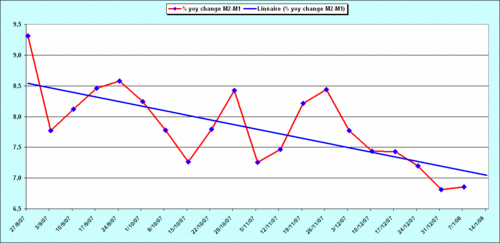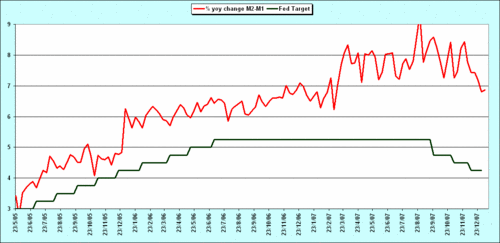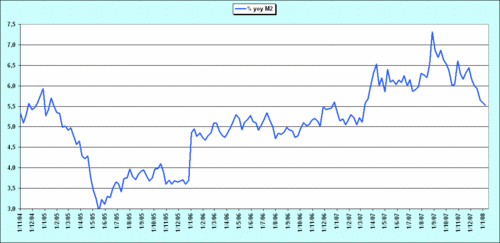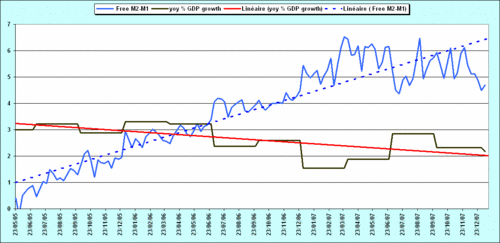Americans very well react!
Americans very well react!
Americans very well react, better than fund managers as evidenced by the evolution of monetary aggregates figures on Jan. 7.
Indeed, Americans increased less savings because their economic situation is good and they anticipate an improvement.
The unemployment rate is low at 5%, corporate profits and productivity gains are high.
The government will launch a plan to freeze interest mortgages rates (to reduce the risk of foreclosures) and to boost consumption.
The increase in M2-M1, which was 8.5% (year on year) in late August 2007… decreases: it is now much lower than 7% since 2 weeks (the Fed revised the figures for last few weeks).
Chart 1:

(Click here to enlarge the graph)
Since May 2005, Americans increased their savings more and more until the end of August 2007 (from 3% to 9%) because they feared that their situation is deteriorating.
Since then, the trend is reversed: it is down (from 9% to 7%), meaning that Americans are increasing their savings less because they have confidence in the future.
They do not hesitate to spend their income, which boosts the GDP growth.
Chart 2:

(Click here to enlarge the graph)
The increase in M2 has fallen sharply: it is now at 5.5% and it tends to 5%. Money is sound.
Chart 3:

Click here to enlarge the graph)
As real GDP growth is inversely proportional to the variation of the free money supply in M2-M1 (decreasing), the growth is and will remain weak but positive, and it will tend to recover spontaneously from July 2008 because the Fed decreased its target down to 4.25% in December, that have positive consequences 6 months later.
Chart 4:

(Click here to enlarge the graph)
In this figure, the selected GDP growth rate is at 0% to a quarterly basis, or at 2.3% year on year for the fourth quarter 2007 and at 2.2% for the first quarter 2008.
Under these conditions, a decrease of the Fed target is not justified.
By lowering their rates below the neutrality (4.25%), the FOMC members could cause too much growth a few months later, which will require in the future that they rise too high the Fed funds, thus perpetuating unnecessarily cycles like in the past.
***
